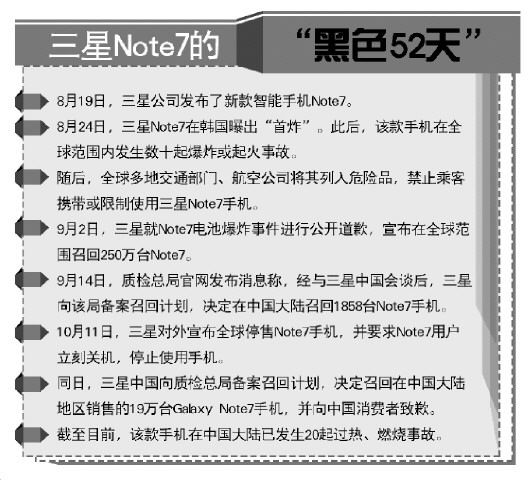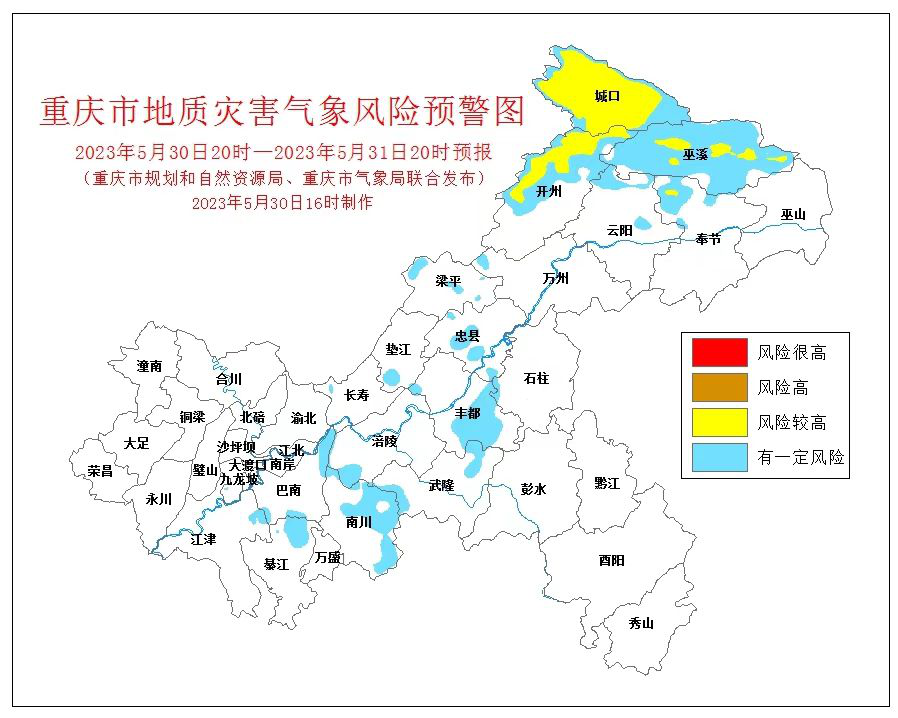China Youth Daily, founded on April 27th, 1951, is the central organ of the Communist Youth League and an influential central media with young people as its main readers. Comrade Mao Zedong wrote an inscription for China Youth Daily. China Youth Newspaper has 33 reporter stations in China and resident reporters in 7 countries and regions.
China Youth Newspaper persistently armed its mind with the Supreme Leader’s New Era Socialism with Chinese characteristics Thought, always adhering to the duty and mission of "educating people for the Party and the country", making every effort to create a leading position for young people’s ideology and politics, and further promoting the reform of visual integration, remoulding all-media elite, and constantly improving the dissemination, guidance, influence and credibility of news and public opinion according to the goal of building a domestic first-class media organization in the youth field of the Party with firm politics, distinctive features and wide influence.
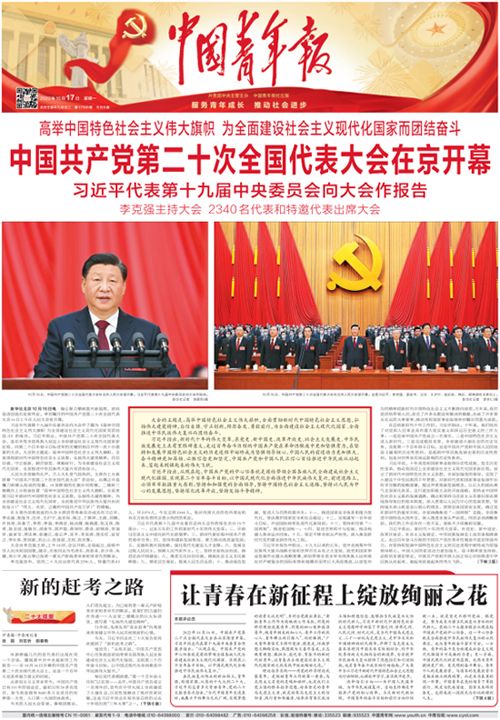
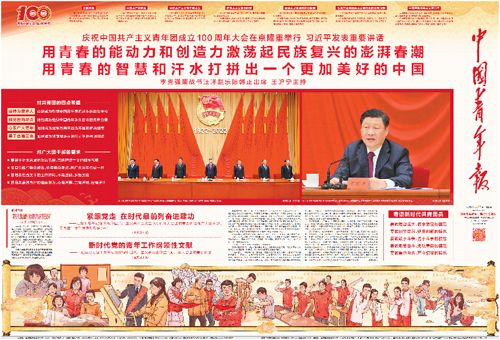
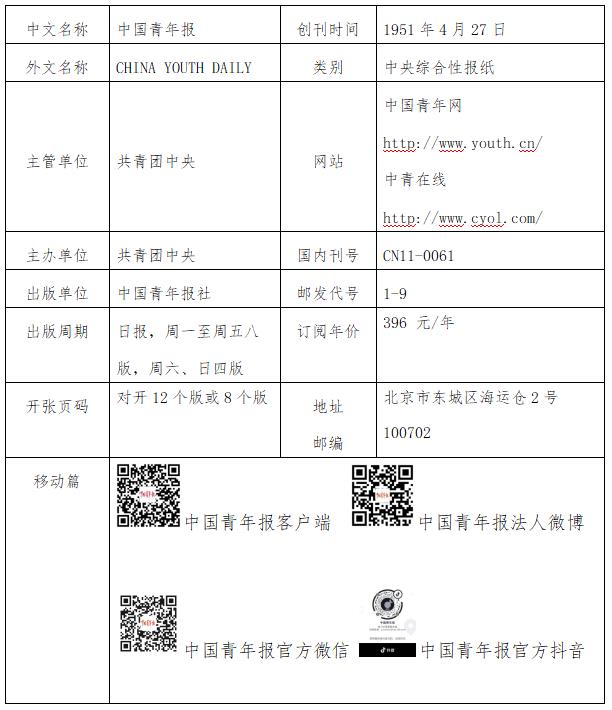
I. Historical evolution
On April 27th, 1951, with the approval of the Central Committee of the Communist Party of China leaders such as Mao Zedong, Liu Shaoqi and Zhou Enlai, China Youth Daily was founded in Beijing.
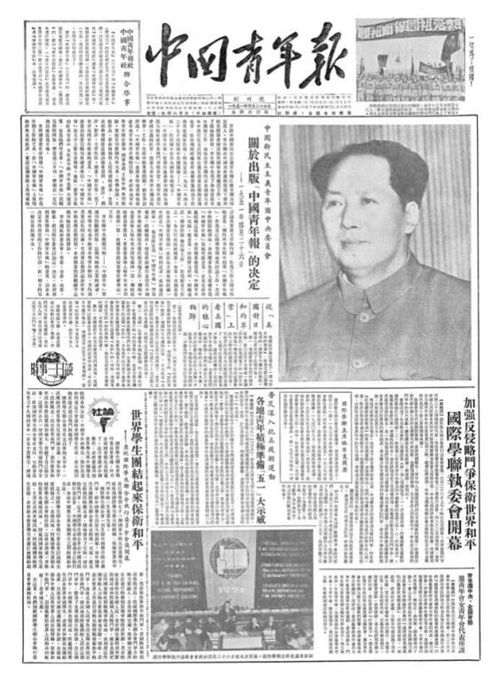
In 1950s, China Youth Daily publicized the stories of Huang Jiguang and Qiu Shaoyun who fought bravely to resist US aggression and aid Korea and defend their country, as well as young heroes and model workers such as Hao Jianxiu, a Qingdao textile worker who created advanced operation methods, and Wang Chonglun, an Angang worker who was "ahead of time". In the 1960s, the spirit of "serving the people wholeheartedly" and "one is not afraid of hardship, and the other is not afraid of death" was publicized by China People’s Liberation Army soldiers Lei Feng and Wang Jie.
On August 20th, 1966, China Youth Daily was closed due to the "Cultural Revolution".
On October 7, 1978, with the approval of the Central Committee of the Communist Party of China, China Youth Daily was reissued.
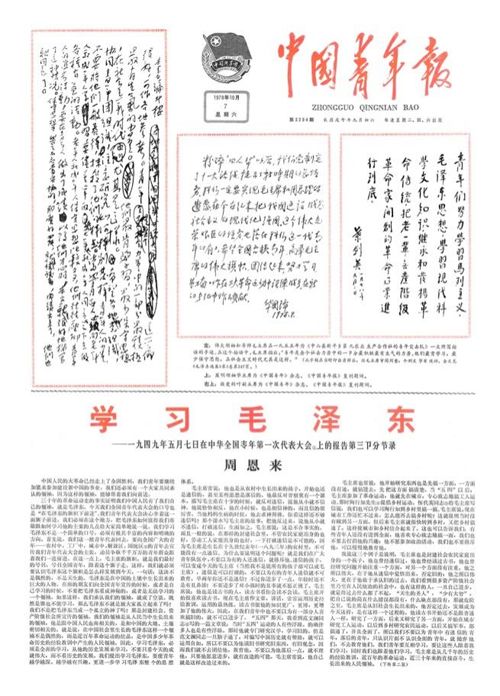
After the re-publication, China Youth Daily reported the deeds of Zhang Zhixin who fought bravely against Lin Biao and Jiang Qing’s counter-revolutionary group, Zhang Haidi who was physically and mentally disabled, the China women’s volleyball team and other young advanced figures and collectives, and reported the advanced deeds of young reformers who were brave in pioneering from all walks of life.
In October 1998, the online edition of China Youth Daily was launched.
In May 2000, Zhongqing Online Website was officially launched.
In November 2016, the freezing point warm smell client was upgraded to China Youth Daily client.
In March, 2017, the central kitchen featured by China Youth Daily was put into use.
In October 2019, 100% equity of Zhongqingwang New Media Technology (Beijing) Co., Ltd. was transferred to China Youth Newspaper, and China Youth Network became the main news website of China Youth Daily, and the Zhongqing online website under the newspaper was transformed into a news culture video website.
In May 2020, China Youth Daily’s "Media-melting Kitchen" was fully upgraded to "Media-melting Cloud Kitchen", and in July, China Youth Daily’s client version 4.0 was launched.
In April, 2021, the 70th anniversary of the publication of China Youth Daily, the reform will start again.
In April, 2022, China Youth Newspaper held the launching activity of "Release of Youth Cultural Big Data Project System and Construction of Youth Cultural Big Data Headquarters Base" with the theme of "Linking the Future to Illuminate Youth", and the headquarters base was located in the newspaper "Youth Yuan Family of the universe".

Second, the purpose of running a newspaper
Since its founding, several generations of central leading collectives have cared for China Youth Daily, and successive secretariats of the Communist Youth League Central Committee have attached great importance to China Youth Daily, giving China Youth Daily a special mission and ardent expectation of uniting with young people, guiding and educating them, inspiring them and caring for them. China Youth Newspaper has always combined firm party spirit with distinctive youth characteristics in various historical periods of new China’s construction, reform and opening up, building a well-off society in an all-round way and building a socialist modern country in an all-round way, and determined a series of major newspaper ideas and policies, such as "Ideological Newspaper, Banner Newspaper, Knowledge Newspaper, Battle Newspaper", "Tighter with the Central Committee, Closer with the youth", "Serving the growth of the youth and promoting social progress" and "Youth pays attention to the youth". Constantly explore ways of communication that young people love, inspire them with ideals and beliefs, arm them with scientific theories, inspire them with the spirit of the times, enrich them with modern knowledge, cultivate them with noble sentiments, publicize their advanced figures, inspire their spirit of struggle, enlighten their spiritual wisdom, reflect their aspirations and voices, safeguard their legitimate rights and interests, and unite and inspire them to make contributions to the Chinese dream of the great rejuvenation of the Chinese nation.
Since the 18th National Congress of the Communist Party of China, China Youth Daily has thoroughly studied, publicized and implemented the Supreme Leader’s Socialism with Chinese characteristics Thought in the new era, consciously undertaken the mission of raising the banner, gathering people’s hearts, cultivating new people, promoting culture and displaying image, strived to give full play to the unique role of the youth mainstream media in educating people for the Party, serving the overall situation, serving the whole group and serving the youth, accelerated its March to the new mainstream media, and made every effort to create a new platform for governing the country. We will create a new pattern of international communication with internal introduction and outreach, create a beautiful and practical new service that benefits the country and the people, strive to build the party’s first-class domestic media organizations in the field of youth, and enhance the online communication, guidance, influence and credibility for young people.
In 2022, China Youth Newspaper actively promoted the development of media integration reform, and "Media-melting Cloud Kitchen" continued to play a central role, and the China Youth Daily client "warm BaoBao" visual channel was launched; Differentiated development of two central websites, China Youth Network and Zhongqing Online; The newspaper registered more than 200 institutional accounts on the third-party platform, and the head accounts of China Youth Daily and China Youth Network such as WeChat, Weibo, Tik Tok, Aauto Quicker, headline number and Baijia number played a leading role; The "Green Hornet" column has 20 million users and continues to maintain its head position in the short news video of the central media. The newspaper actively promotes the reform of "visualization", visually reshapes the elite of all media, and defines "visualization" with 10 indicators: let words "stand up" to speak portraits; Let the mirror image "live" to show the graphic meaning; Let the video "green" to activate the first line; Let the broadcast be "special" and play a real drama; Let the process "stand up" and be beautiful and full; Let the data be "deep", dig widely and dig carefully; Let the scene be "used" and round; Let governance be "excellent" and gather wisdom; Let the content be "shipped" and effective; Let the integration be "all", and strive to achieve high-quality integration of "four all-media" (full-process, holographic, full-staff, full-effect).

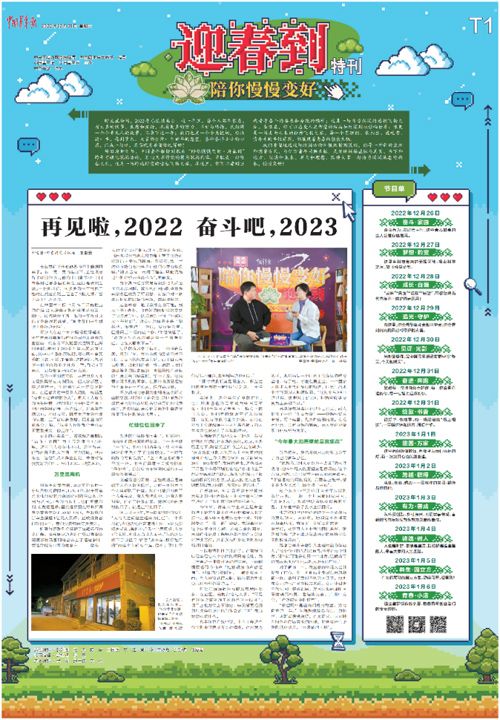
Third, the newspaper layout
In 2023, China Youth Daily was completely revised. At present, there are news pages and special supplements featuring young people, such as important news, youth topics, international, sports, thinkers, culture, twilight, school media, entrepreneurship, youth voice, reading, science, youth survey, Tuantuan BaoBao, Zhongqing sight, 12355 youth hotline, healthy China, ethnic education, etc.
Fourth, newspaper distribution
China Youth Daily publishes 48 editions every week, with print outlets in 24 provinces (cities, autonomous regions) in China. It adopts satellite transmission and has a distribution and marketing network covering all parts of the country.
China Youth Daily has a mailing code of 1-9, and the annual subscription price is 396 yuan. You can subscribe to it at various post offices, or through the online business hall of China Post or WeChat search for "China Post Micro Post Office".

China Youth Newspaper also has two sub-newspapers: Youth Reference (postal code 1-64) and China Young Writers Newspaper (self-published).
V. Awards
In 2022, six works including the communication "Life and Death Line 5" won the 32nd China News Award.
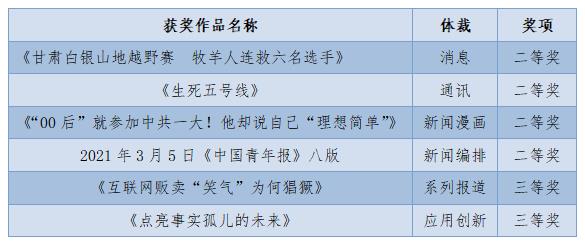
In 2022, more than 10 works (activities) such as "Writing the Youth Chapter on the Motherland" online theme publicity and interactive guidance activities won the 2021 China Positive Energy "Five Hundred" online boutique award.
The intelligent project of "Merging Media and Cloud Kitchen" was selected as "Innovative Case of China Newspaper Industry Integration Development in 2021".
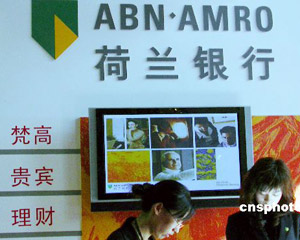
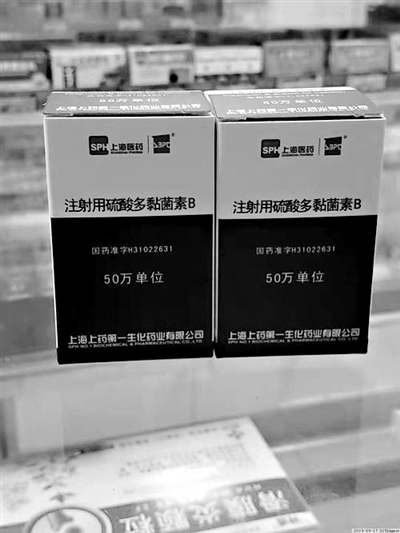 Information picture
Information picture









